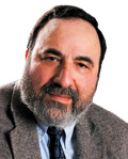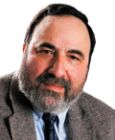
Education
Not Anonymous: Proof that Shakespeare Wrote Shakespeare
It's craven elitism to doubt the country bumpkin is the bard
Posted October 28, 2011

Shakespeare denial is a harmless diversion. No polar bears will die if we don't take measures to correct it. It has the added benefit of being an economic stimulus. When you enter "Shakespeare authorship" into the Amazon search box, you get 728 books both for and against. (Okay, some trees die.)
And now we're getting a movie, Anonymous, which employs prominent denier, Derek Jacoby, and hopes to cash in with the mainstream.
The case against Shakespeare, simply put, is the elitist claim that a country bumpkin could not have been the greatest writer of all time.
The case for Shakespeare, simply put, is that none of the proposed alternatives show any evidence of being able to write as well as the country bumpkin from Stratford.
At the Shakespeare Authorship coalition, you–along, of course, with the director of Anonymous, Sandra Day O'Connor, and the 17th Earl of Exeter–can sign the "Declaration of Reasonable Doubt About the Identity of William Shakespeare."
It asserts–without citing a source, "Academic experts on characteristics of geniuses see little reason to think that Mr. Shakespeare was a genius."
And even if Shakespeare was smarter than your average bumpkin "a genius must acquire knowledge"–the knowledge to use 30,000 words and acquire the cultural background to write confidently about court politics, classic literature, history, and such arcana as falconry heraldry, and lawn tennis.
They wonder whether Shakespeare actually attended the local school in Stratford, which would have provided a modicum of a classical education, and conclude it's a "mystery" about how the man from Stratford could have become Shakespeare.
But is it a mystery?
Let's start with how a country bumpkin is not disqualified from becoming a genius.

Srinivasa Ramanujan
In 1913, G.H. Hardy, at Cambridge University, one of the world's greatest mathematicians, received a letter from an amateur mathematician in Madras, India. Mathematics attracts a great deal of cranks. You don't have to have the beautiful, but crazy mind of John Nash to come up with the craziest things–squaring the circle, one-page proofs of Fermat's last theorem, and equations demonstrating God's existence.
Per standard practice, two of Hardy's colleagues had already tossed this letter, but Hardy lingered.
The letter contained a bunch of unproved theorems in areas such as number theory, integrals, and infinite series along with this remark in the cover letter, "I have had no university education but I have undergone the ordinary school course. After leaving school I have been employing the spare time at my disposal to work at mathematics. I have not trodden through the conventional regular course which is followed in a university course, but I am striking out a new path for myself. I have made a special investigation of divergent series in general and the results I get are termed by the local mathematicians as 'startling.'"
Hardy was startled, too, by Srinivasa Ramanujan, college dropout, who had failed his non-math classes and who was working as a clerk in some dusty Government office in Madras. (Einstein, much better educated, worked a day job for as a bureaucrat in the Swiss patent office while working out Relativity.)
Ramanujan had not sprung full-blown from some mathematical godhead. In his country bumpkin part of India, he had by age 12 discovered new mathematical theorems and--speaking of identity--independently rediscovered the theorem, Euler's Identity.
Who knows what verses were going through Shakespeare's head at 12?
Smart enough to know a great thing when he saw it, Hardy sent Ramanujan a steamer ticket to England. They collaborated for five years. Ramanujan produced theorems that still provide full-employment for mathematicians a century later. He became the second Indian and one of the youngest Fellows of the Royal Society. Among his achievements, and to give you an idea of his genius, he saw the number 1729 and immediately realized that "it is the smallest number expressible as the sum of two cubes in two different ways." (1729 = 13 + 123 = 93 + 103)
Hardy, on a scale of 0 to 100, put himself at 25 and Ramanujan at 100.
In other words, Shakespeare.
Ramanujan, partly an autodidact, operated differently from the standard-issue, traditionally-trained ivory tower mathematician. "His ideas as to what constituted a mathematical proof were of the most shadowy description. All his results, new or old, right or wrong, had been arrived at by a process of mingled argument, intuition and induction, of which he was entirely unable to give any coherent account," wrote Hardy.
In other words, Shakespeare, who did not attend Cambridge as the supposed true bard of Anonymous did, the Earl of Oxford, at most, had an education somewhat like Ramanujan.
But even if Will from Stratford was a genius, what about his ability to "write confidently about court politics, classic literature, history, and such arcana as falconry, heraldry, and lawn tennis"?
Enter Cliff Clavin--bar know-it-all extraordinaire. Although Cliff--who famously flamed out on Jeopardy after he bet his runaway wad on Final Jeopardy--could not "write confidently," I have no doubt that he knew much more than me about "falconry, heraldry, and lawn tennis."
He was often comedically wrong--the umbilical cord is not 90 percent potassium, nor do woman have fewer but larger sweat glands than men--yet he did know that the cow was domesticated in Mesopotamia and that the skin sheds about three pounds each year.
The broader point is that the ability to know load wads of trivia has little connection to a classical, liberal arts education. In fact, the essence of trivia is that it is seemingly random and not connected to systemic knowledge. Many Jeopardy champions are reasonably well educated, although many come from non-academic backgrounds. One of the all-time Jeopardy champions, Frank Spangenberg, was a New York City transit cop, and he was not unusual.
So it's no stretch, given the characteristics of Jeopardy champions, that the man from Stratford knew enough about heraldry to work it in. And his use of heraldry was, well, trivial. It kept the action moving without being a Cambridge dissertation. When Shakespeare writes, "no hatchment over his bones," he simply needs to know a hatchment is a plaque commemorating a person's lifetime achievement. He doesn't need to know the minutiae of hatchments displayed by widows versus widowers.
Shakespeare scans, and find me a great writer with a PhD.
"All the world's a stage," not only the halls of power and academe, and, "our life, exempt from public haunt, finds tongues in trees, books in the running brooks, sermons in stones, and good in everything."
---------------------------------------------------

My book, Nasty, Brutish, and Long: Adventures In Eldercare (Avery/Penguin, 2009), was a Finalist for the 2010 Connecticut Book Award. Click here to read the first chapter It provides a unique, insider's perspective on aging in America. It is an account of my work as a psychologist in nursing homes, the story of caregiving to my frail, elderly parents--all to the accompaniment of ruminations on my own mortality. Thomas Lynch, author of The Undertaking, calls it "A book for policy makers, caregivers, the halt and lame, the upright and unemcumbered: anyone who ever intends to get old."



